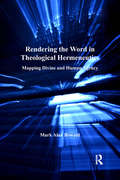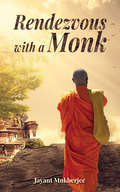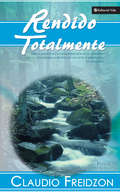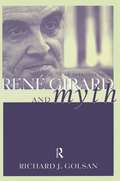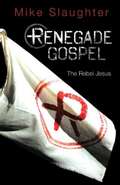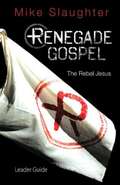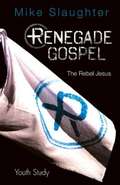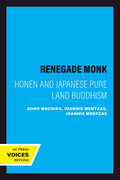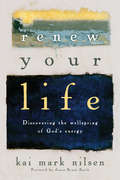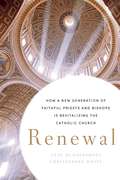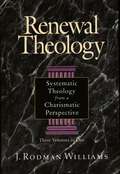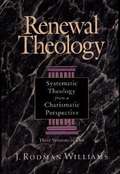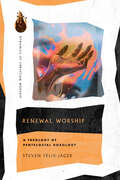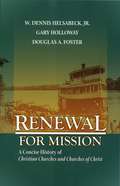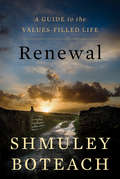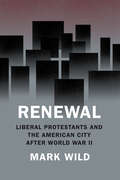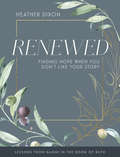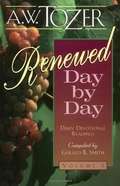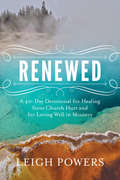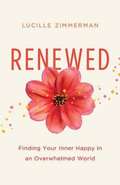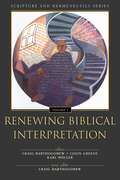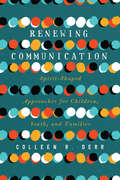- Table View
- List View
Rendered For More
by Regina Murden“Love all, trust a few, do wrong to none.” Being an orphan that is often banned from the social norms. Love is not a concept easily perceived. Yet, we find ourselves being orphans in life and not feeling a sense of belonging. We see little engagement from others that can be trusted and begin questioning ourselves the possibility of love. Taking a walk with God not knowing where it may lead you requires trust and being vulnerable to allow scars to be seen by many. We see as the story unfolds love leads to an unlock door that seems unfathomable. The fingerprints of the askew lines between trust and hate vanishes. When we see the main characters chooses to open their hearts to a love that is indescribable. We will see if they sell their heart for more Esther, meaning star, rises the matter is she really is, or there was a master hand at play. Often judged by outer beauty. It’s the inner beauty within that positions the opportunity of a lifetime to not only be seen but reign. While going through life feeling blacklisted. The temptation to wanting to do wrong is tamed by the pure fire than burns within the hearts for wanting more than this life has to offer. The mystery has been revealed that the women held confidential weapon possess inwardly to offset the outwardly demises. In the rendering finding purpose and a perception.
Rendering the Word in Theological Hermeneutics: Mapping Divine and Human Agency (Studies In Historical And Systematic Theology Ser.)
by Mark Alan BowaldThis book proposes an original typology for grasping the differences between diverse types of biblical interpretation, fashioned in a triangle around a major theological and philosophical lacuna: the relation between divine and human action. Despite their purported concern for reading God's word, most modern and postmodern approaches to biblical interpretation do not seriously consider the role of divine agency as having a real influence in and on the process of reading Scripture. Mark Bowald seeks to correct and clarify this deficiency by demonstrating the inevitable role that divine agency plays in contemporary proposals in relation to human agency enacted in the composition of the biblical text and the reader. This book presents an important contribution to the emerging field of theological hermeneutics. Bowald discusses in depth the hermeneutics of George Lindbeck, Hans Frei, Kevin Vanhoozer, Francis Watson, Stephen Fowl, David Kelsey, Werner Jeanrond, Karl Barth, James K.A. Smith, and Nicholas Wolterstorff.
Rendezvous with a Monk
by Jayant MukherjeeWhat is the meaning of our life? What is the relevance of Swami Vivekananda and his teaching's in today’s fast-paced world? Are religion and spirituality the same? When Deepak and Dipali arrive in Dehradun to meet their childhood friend Jayant, they bring with them a monk. His addition in the mix ensures a rather unusual route of conversation on spirituality. Stories that are both thought-provoking and interesting emerge from the perspective of ancient Indian ethos rather than philosophy or theism. When Jayant reveals that he is, in fact, currently writing a book on Swami Vivekananda, the discussion turns deeper with relevant questions on the meaning (of life), vision, work, organization, leader as mentor, and reality. The protagonists navigate their way through the tributaries of humanism, philosophy, religion, and management and try to find answers to questions that Vivekananda himself grappled with. Written in an easy conversational manner, you will be extolled on not taking anything at face value but to choose your own path of truth. This book leaves you with a feeling of optimism and self-belief.
Rendido totalmente
by Claudio FreidzonEn este inspirador y desafiante libro Claudio Freidzon te llevara a confrontar aspectos y actitudes de tu carácter y personalidad, donde se manifiestan tus debilidades. A traves de la guia del Espiritu Santo, este libro te conducira a recuperar los valores y conocer los principios de pureza y santidad estrablecidos en la palabra de Dios. La historia de la vida de Naaman, general del ejercito Sirio en tiempos del profeta Eliseo, se abrira ante ti: te revelara aspectos asombrosos y determinantes para que puedas alcanzar la victoria sobre cada una de las pruebas que debes enfrentar.
Rene Girard and Myth: An Introduction (Theorists of Myth)
by Richard GolsanFirst published in 2002. Routledge is an imprint of Taylor & Francis, an informa company.
Renegade Gospel - Large Print Edition: The Rebel Jesus (Renegade Gospel series)
by Mike SlaughterCentral to the Christian faith is a man who denies all our pre-conceived notions about what God should look like. Joining his movement will mean coming to terms with the real Jesus, the rebel Jesus. Jesus didn't come to start a religion. The rebel Jesus came with a renegade gospel to start a revolution. You and I are invited to be a part. In Renegade Gospel, pastor and author Mike Slaughter presents Jesus and his challenging message to inspire us during Lent, Easter, and through the year. Read the red letters and discover Jesus all over again. Renegade Gospel is a multi-component, all-church sermon series and group study with six sessions. Topics include: Discovering the Rebel Jesus Revolutionary Lifestyle The Most Important Question You Will Ever Have to Answer Seeing Jesus Today The Way of the Cross Resurrection
Renegade Gospel Leader Guide: The Rebel Jesus (Renegade Gospel series)
by Mike SlaughterJesus didn't come to start a religion. The rebel Jesus came with a renegade gospel to start a revolution. You and I are invited to be a part. In Renegade Gospel, pastor and author Mike Slaughter presents Jesus and his challenging message to inspire us during Lent, Easter, and through the year. Read the red letters and discover Jesus all over again. This Leader Guide contains everything needed to guide a group through the book and DVD. It includes session plans and discussion questions, as well as format options.
Renegade Gospel Youth Study: The Rebel Jesus (Renegade Gospel series)
by Mike SlaughterJesus didn't come to start a religion. The rebel Jesus came with a renegade gospel to start a revolution. You and I are invited to be a part. In Renegade Gospel, pastor and author Mike Slaughter presents Jesus and his challenging message to inspire us during Lent, Easter, and through the year. Read the red letters and discover Jesus all over again. This six-session Youth Study is designed for parallel use with the adult and children's studies as part of an all-church program. The study communicates the challenging, revolutionary message of Jesus in terms that are meaningful for youth.
Renegade Monk: Honen and Japanese Pure Land Buddhism
by Soho MachidaThe Pure Land sect of Japanese Buddhism is one of the strongest Buddhist sects in Japan, with three and a half million followers. In this book, Soho Machida provides the first detailed, objective account in English of the life and thought of its founder, Honenbo Genku (1133-1212), known as Honen.Opening with the destruction and chaos that beleaguered Kyoto during Honen's lifetime, Soho Machida explores Honen's social context to discover the roots of his thought and the source of his popularity. The Old Buddhist regime had a stranglehold on peasants, he shows, by concocting images of vindictive spirits, hell, and an apocalyptic collapse of the law in these chaotic times. Machida asserts that when Honen countered such negative, menacing images by focusing his imagination on the Pure Land and actually affirming death, he became not only a radical thinker but also the leader of a revolutionary social movement—a medieval Japanese "liberation theology." Clearly argued and informed by contemporary Western theory, this book will become the definitive source on Honen's life and thought for decades to come.
Renew Your Life: Discovering the Wellspring of God's Energy
by Kai Mark Nilsensay no to an addiction and yes to lifegain new insight to how we are designed and linked to the web of creationforgive others and reconnect relationshipsparticipate in loving service with and for others
Renew the Face of the Earth
by Albert J. FritschOur planet is now in great peril not only from the possibility of a nuclear disaster, but from the effects of an affluent society that abuses the earth's resources. Species of plants and animals are disappearing. The earth's forests are being cut at a phenomenal rate. Toxic wastes are threatening our drinking water, and acid rain is falling on fragile lakes and evergreens. This book is meant to be a catalyst to bring people to the rescue of the earth. It is Christian in concept, but it is a call to all believers, to everyone who values the earth as the unique planet that it is, the only place we have yet discovered where life has come into being, and the only place where the divine and human have been bonded together. This should arouse in each of us a deep sense of awe and responsibility. Albert Fritsch links Christianity to a love of the earth. We are called to bring about a New Earth, and to do this we must first renew ourselves. He suggests we adopt a simpler life-style, avoid the sins of affluence, and become contrasumers rather than consumers. Each of us must learn to act locally, but think globally. We can all become renewers not abusers of the earth. We can become sensitive to the earth and to each other in a union of love and mutual dependence.
Renew: A Devotional Magazine for Women
by ZondervanA Devotional Magazine for Women This devotional magazine is for women, age forty and beyond, whose lives are filled with struggles, sorrows, joys, and triumphs at home, work, church, and in the community. It offers inspirational thoughts and wise insights from women who have triumphed through similar trials. It also shows how to pass on a legacy of faith, wisdom, and love to others.
Renewal
by Anne Hendershott Christopher WhiteIn the wake of the clergy abuse scandal of the last decade, many media commentators predicted the "end" of the Catholic priesthood. Demands for an end to celibacy, coupled with calls for women's ordination, dominated discussions on the effectiveness of the Catholic Church in America. Renewal argues that rather than a decline of the priesthood and a diminishing influence of the Catholic Church, we are living in a time of transformation and revitalization. The aging generation of progressives that continues to lobby Church leaders to change Catholic teachings on reproductive rights, same-sex marriage and women's ordination is being replaced by younger men and women who are attracted to the Church because of the very timelessness of its teachings.
Renewal Theology: Systematic Theology from a Charismatic Perspective
by J. Rodman WilliamsRenewal Theology deals with the full range of Christian truth from within the charismatic tradition. Previously published as three separate volumes, Renewal Theology represents the first exhaustive, balanced articulation of charismatic theology. Renewal Theology discusses: Book One--God, the World, and Redemption - Book Two--Salvation, the Holy Spirit, and Christian Living - Book Three--The Church, the Kingdom, and Last Things. As theology, this work is an intellectual achievement. But it is much more than that. The author urges the church to undertake its task of theology in the proper spirit: - an attitude of prayer - a deepening sense of reverence - an ever-increasing purity of heart - a spirit of growing love - a theological approach rooted in the glory of God. Done in such a spirit, theology becomes a faithful and powerful witness to the living God.
Renewal Theology: Systematic Theology from a Charismatic Perspective, Three Volumes in One
by J. Rodman WilliamsRenewal Theology deals with the full range of Christian truth from within the charismatic tradition and discusses: Book One--God, the World, and Redemption; Book Two--Salvation, the Holy Spirit, and Christian Living; Book Three--The Church, the Kingdom, and Last Things.
Renewal Worship: A Theology of Pentecostal Doxology (Dynamics of Christian Worship)
by Steven Félix-JägerAt its best, all Christian worship is led by the Holy Spirit. But is there a distinctive theology of Pentecostal worship?The Pentecostal church or the renewal movement is among the fastest-growing parts of the body of Christ around the world, which makes understanding its theology and practice critical for the future of the church.In this volume in IVP Academic's Dynamics of Christian Worship (DCW) series, theologian Steven Félix-Jäger offers a theology of renewal worship, including its biblical foundations, how its global nature is expressed in particular localities, and how charismatic worship distinctively shapes the community of faith. With his guidance, the whole church might understand better what it means to pray, "Come, Holy Spirit!"The Dynamics of Christian Worship series draws from a wide range of worshiping contexts and denominational backgrounds to unpack the many dynamics of Christian worship—including prayer, reading the Bible, preaching, baptism, the Lord’s Supper, music, visual art, architecture, and more—to deepen both the theology and practice of Christian worship for the life of the church.
Renewal for Mission: A Concise History of Christian Churches and Churches of Christ
by Gary HollowayThe Stone-Campbell (Restoration) Movement was born as a Christian renewal effort in the early 19th century. This book tells the story of Christian Churches and Churches of Christ in a brief and compelling way. It is ideal for long-time members, new members, and those unfamiliar with this significant group of churches and its place in American Christianity. A Teacher's Guide is included in this volume.
Renewal: A Guide to the Values-Filled Life
by Rabbi Shmuley BoteachOur culture is showing the cracks of a growing fracture. Soaring divorce rates; a crippled economy that rewards the few and punishes the many; religious-fueled hatred; record rates of depression--the headlines paint a grim picture. We inhabit a society that desperately needs fixing. But as Rabbi Shmuley Boteach reveals in his new book, Renewal, our society can made whole again when we as individuals make the choice to live a life based on values. For too long, conversations about values have been derailed by political movements trying to score points over hot-button issues like gay marriage or abortion. Boteach, one of our wisest and most respected counselors and spiritual experts, reaches deep into our history and into our shared religious legacy to revive the key universal values of Judaism for our struggling world. He presents these age-old ideas as guideposts for the challenges of modern times. These values, whose roots are in the Bible and thousands of years of Jewish spiritual living, can be applied to anyone in the modern world--from Christians and Muslims to atheists and agnostics--who want to renew their existence and recommit themselves to the most precious things in life. Renewal shows everyone how to use the timeless values of the Hebrew Bible and Judaism to live a more fulfilling, modern life. Destiny Unlike the Greeks, who believed that life was scripted from birth, the Jews believe in destiny. In short, they reject the idea of tragic fates and instead champion the individuals' capacity to create their own destiny through individual choice. Redemption Christians and Muslims emphasize salvation, or the need for man to become spiritual--to refine his character and earn a place in heaven. But Jews believe in world redemption, the capacity for the individuals to make heaven here on earth for,the betterment of the community. Action What you do is more important than what you believe. Good deeds always supersede good dogma. Enlightenment Jews are an infinitely curious people and believe that the great bane of existence--boredom--can only be cured by knowledge. Marriage Marriage refers not just to the institution, but rather the softening of the masculine by exposure to the feminine. A culture that does not know how to respect women is bound to collapse. Struggle It is wrestling with our nature, rather than attaining perfection, that constitutes true righteousness. Everyone is somehow flawed, but righteousness is found in the struggle to do right amid a predilection to act selfishly. Sacred Time Whereas other religions sanctify space, Jewish values privilege special moments. The Sabbath day, the holiest day of the week, provides a time for connecting with family and friends.
Renewal: Liberal Protestants and the American City after World War II (Historical Studies of Urban America)
by Mark WildIn the decades following World War II, a movement of clergy and laity sought to restore liberal Protestantism to the center of American urban life. Chastened by their failure to avert war and the Holocaust, and troubled by missionaries’ complicity with colonial regimes, they redirected their energies back home. Renewal explores the rise and fall of this movement, which began as an effort to restore the church’s standing but wound up as nothing less than an openhearted crusade to remake our nation’s cities. These campaigns reached beyond church walls to build or lend a hand to scores of organizations fighting for welfare, social justice, and community empowerment among the increasingly nonwhite urban working class. Church leaders extended their efforts far beyond traditional evangelicalism, often dovetailing with many of the contemporaneous social currents coursing through the nation, including black freedom movements and the War on Poverty. Renewal illuminates the overlooked story of how religious institutions both shaped and were shaped by postwar urban America.
Renewed - Women's Bible Study Participant Workbook with Leader Helps: Finding Hope When You Dont Like Your Story (Renewed)
by Heather M. DixonLessons from Naomi in the Book of Ruth.Few things make us feel as helpless as living with a story we don’t like. Maybe one that involves the loss of a loved one, an unwanted transition, a difficult diagnosis, or a dream that fell through. At one time or another, we all deal with disappointments and feelings that life is unfair or that we are being punished.In Renewed, a four-week study of the Book of Ruth, women glean wisdom from Naomi’s perspective, a woman who lived a story she didn’t choose or like. Forced to chart a new path as she mourned the loss of her husband and two sons, Naomi learned that the journey from bitterness to renewed hope and joy was rooted in God’s promise of redemption.With insight from her own journey of living with a story that is not easy, Heather teaches women to flourish even as they live hard stories through a willingness to trust that God can transform them and trade their heartache for hope. They will learn to rely on God’s movement in the details of their story, even when it can’t be seen, gain confidence to act in the part of their stories that they can change, and watch expectantly for God to redeem the parts they can’t.Components for this four-week Bible study, available separately, include a Participant Workbook with Leader Helps and a DVD with four 20 to 25-minute segments (with closed captioning).
Renewed Day by Day: A Daily Devotional
by A. W. Tozer Gerald B. SmithThis book of 365 daily devotions is a distillation of the wisdom of A.W. Tozer, gleaned in his lifelong pursuit of God. Tozer writes for those who want spiritual muscle. His summons is to "put aside the playthings of the material world and thirst for God."
Renewed: A 40-Day Devotional for Healing from Church Hurt and for Loving Well in Ministry
by Leigh Powersp.p1 {margin: 0.0px 0.0px 0.0px 0.0px; font: 12.0px Arial} span.s1 {font-kerning: none} span.s2 {font-kerning: none; color: #ff2500} RENEWED is a devotional providing healing for those in ministry who have been hurt in the church. Ministry is a privilege, but it can also be a painful experience. Unrealistic expectations, church conflict, forced resignations, and our own struggles with burnout, loneliness, and insecurity can make church feel more like a place of wounding than a place of healing. How can wounded leaders find the courage to reject bitterness and keep loving the church?RENEWED is a forty-day devotional for women in ministry, ministry wives, and lay leaders who have been wounded by their congregations. You are not alone. God sees your pain. He knows your hurts. And he is waiting to bind up your broken heart. This forty-day journey into the healing love of Jesus will help you find the courage to stop hiding and start loving the church again.
Renewed: Finding Your Inner Happy in an Overwhelmed World
by Lucille ZimmermanWomen increasingly find themselves pulled in many directions, striving to balance the needs of others with the need to nurture themselves. This pull is often exhausting and, sometimes, can lead to resentment or burn-out. So how do we manage our work and family and faith and ministry lives if we aren’t able to take care of ourselves as we also take care of others? Renewed helps women understand the need to put themselves on “the list.” Through practical ideas and relatable anecdotes, readers can better understand their strengths and their passions—and address some of the underlying struggles or hurts that make them want to keep busy or minister to others to the detriment of themselves. Renewed can help nurture those areas of women’s lives to use them better for work, family, and service. It gives readers permission to examine where they spend their energy and time, and learn to set limits and listen to “that inner voice.”
Renewing Biblical Interpretation (Scripture and Hermeneutics Series)
by ZondervanRenewing Biblical Interpretation is the first of eight volumes from the Scripture and Hermeneutics Seminar. This annual gathering of Christian scholars from various disciplines was established in 1998 and aims to re-assess the discipline of biblical studies from the foundation up and forge creative new ways for re-opening the Bible in our cultures. Including a retrospective on the consultation by Walter Brueggemann, the contributors to Renewing Biblical Interpretation consider three elements in approaching the Bible—the historical, the literary and the theological—and the underlying philosophical issues that shape the way we think about literature and history.
Renewing Communication: Spirit-Shaped Approaches for Children, Youth, and Families
by Colleen R. DerrWe are constantly communicating.Renewing Communicationtheories of human developmenthow to understand your audience and contextsetting specific goalsnonverbal communicationeffective techniquesusing creativityevaluation and assessment

